The flurry of opt-outs during the sunrise period of the Unified Patent Court was partly driven out of concern of potential central revocation actions being filed as soon as the Court opened. As it turns out, of all of the UPC proceedings made public so far, only 4 seek revocation of a European patent while 22 are infringement actions.
Infringement and revocation proceedings made public since the start of the UPC
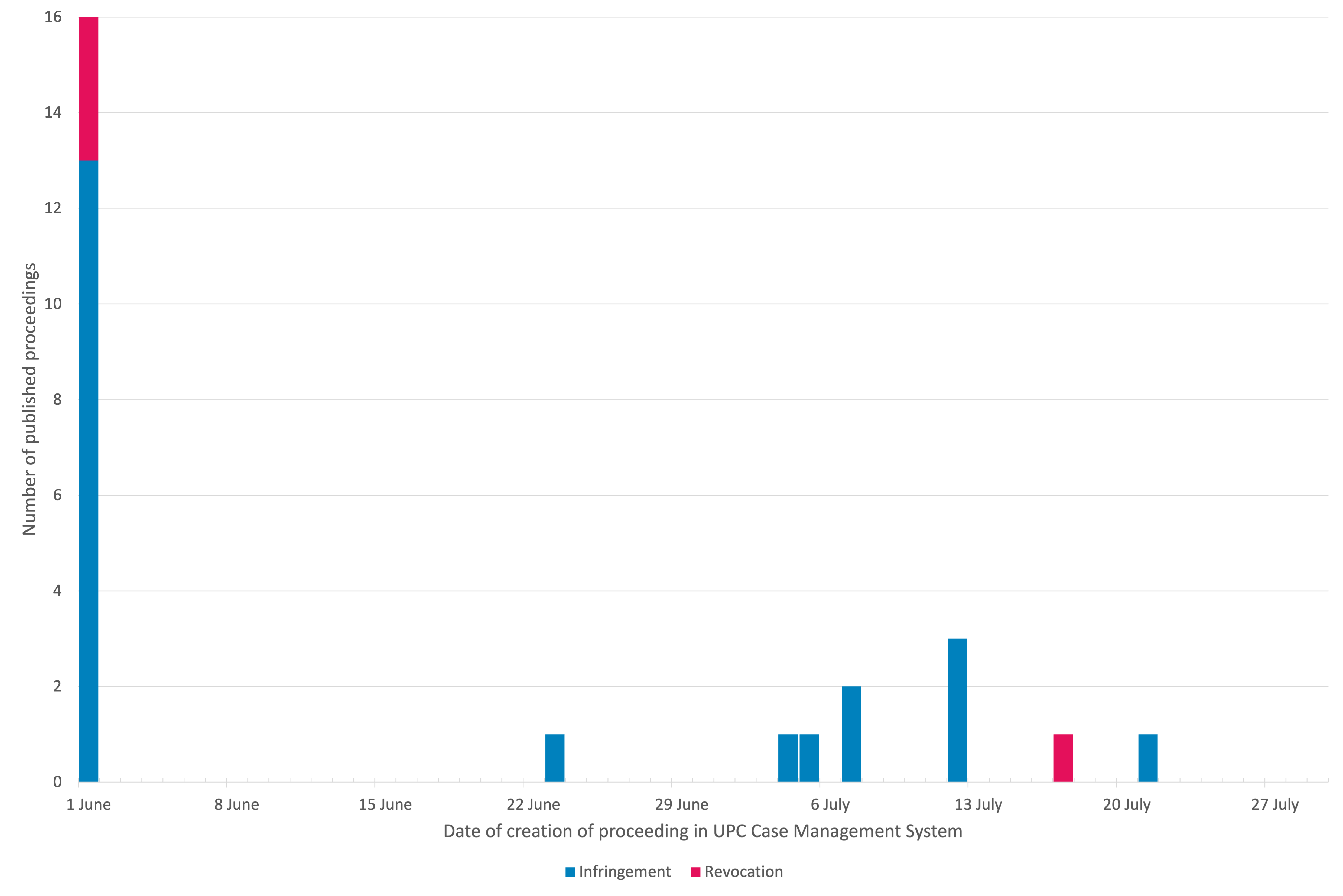
Most actions seem to relate to existing disputes between the parties, such as the recently-settled one between Ocado and Autostore, and so the use of this new forum has probably not surprised the parties involved. All but one of the infringement and revocation actions published so far are in respect of a single patent.
To date, proceedings have been initiated in 9 different divisions of the UPC, with 2 out of 3 actions initiated in a German division. No known proceedings have been filed in the Paris central division or the remaining 6 local divisions in Brussels, Copenhagen, Lisbon, Ljubljana, Mannheim, and Vienna.
Division of filing infringement and revocation actions
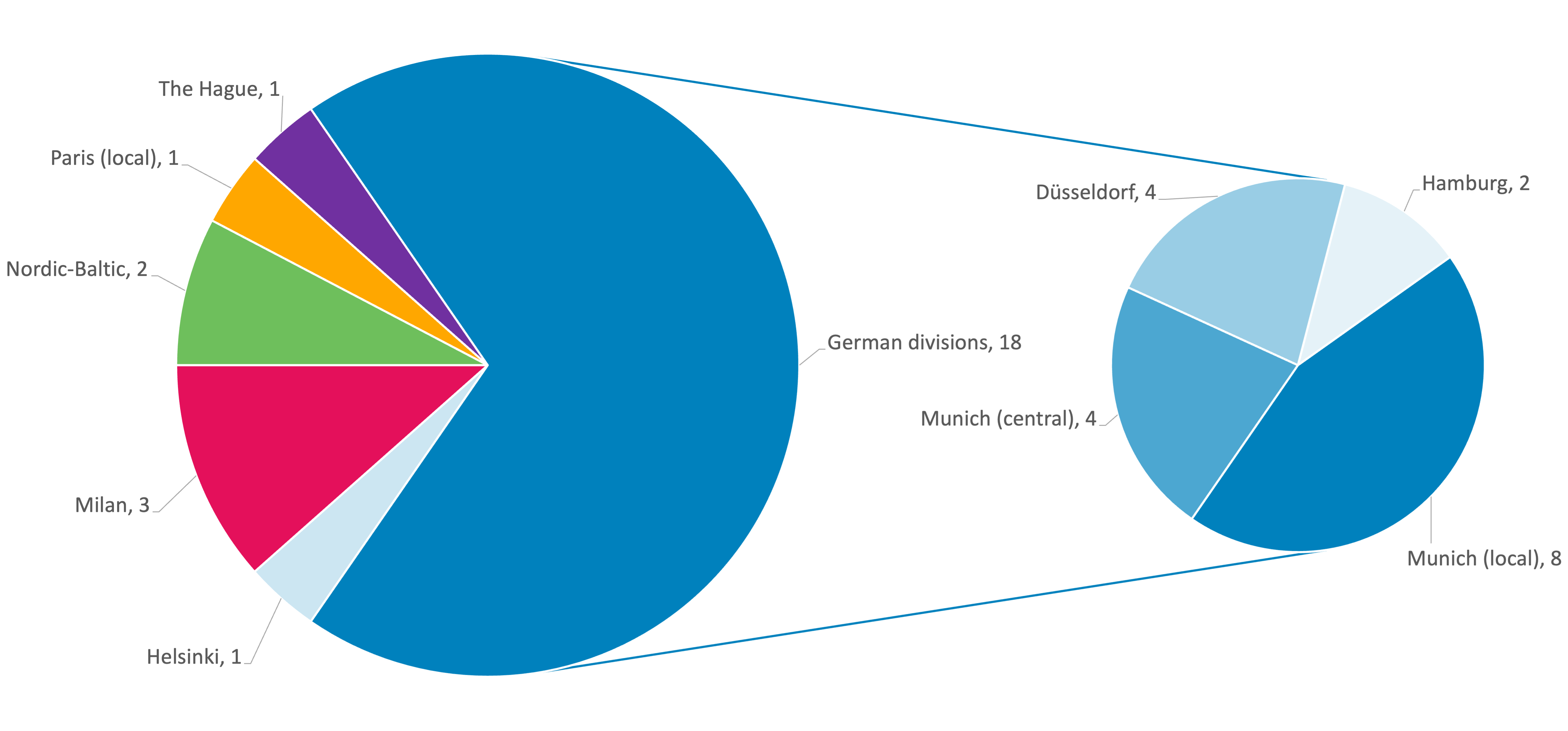
Given the number of local divisions situated in Germany, it would seem that the propensity towards filing UPC infringement actions in Germany was anticipated.
Unitary Patents
Earlier this week, the European Patent Office launched its Unitary Patent dashboard which gives daily updates on metrics including the number, status, timing and general technical field related to requests for unitary effect.
As of writing, the total number of requests for unitary effect is 5,545. This represents 25.5% of the total number of European patents granted in June and July 2023. Of course, this is not a full reflection of potential unitary patents from July’s grants since there is a one-month deadline from grant for requesting unitary effect, so expect this to increase. June’s proportion will also be skewed upwards since grant of European applications from January 2023 was able to be delayed on request to enable unitary patents to be obtained.
Proportion of European patent grants for which unitary effect has been requested
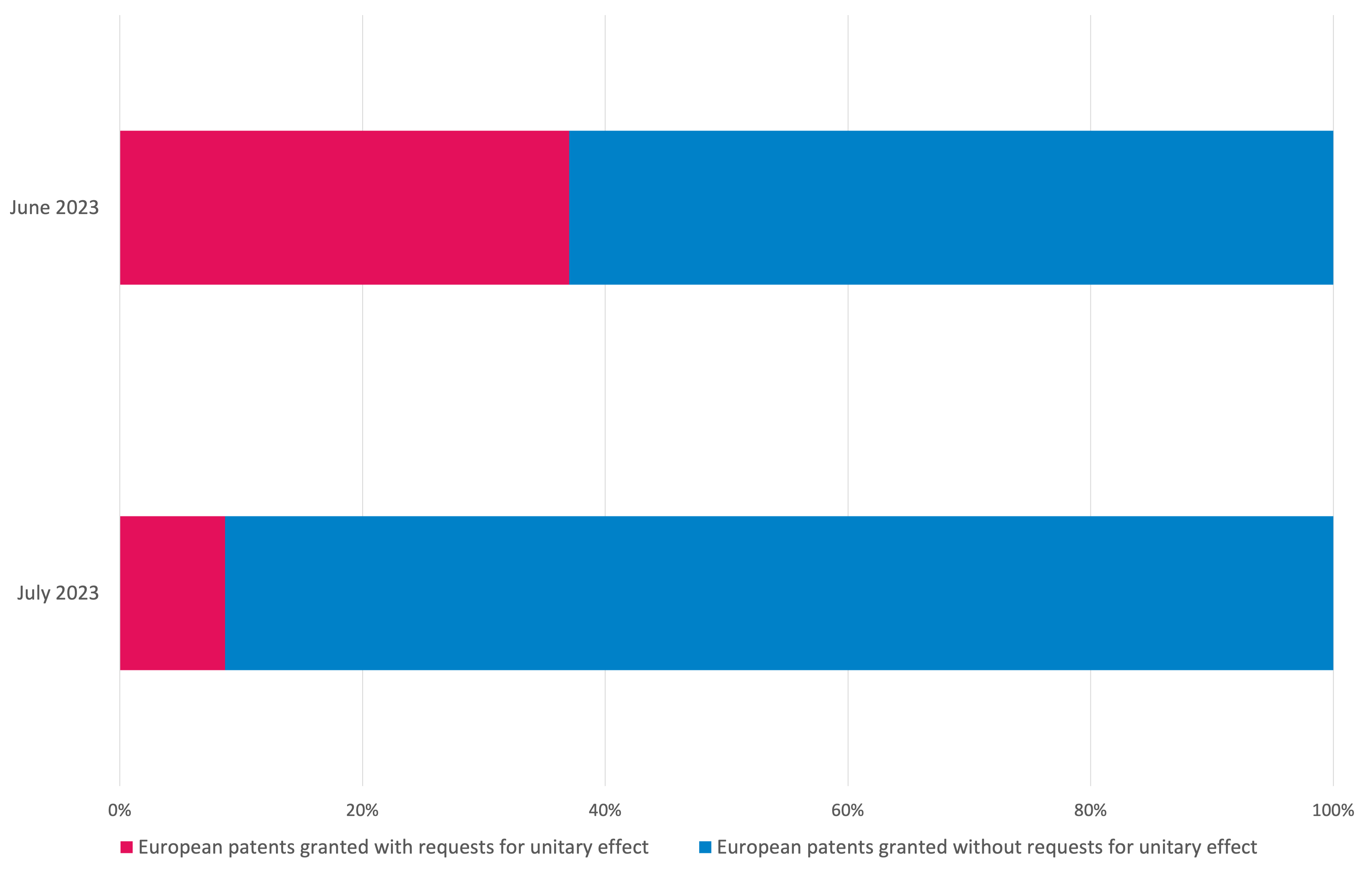
When filing a request for unitary effect, the EPO asks requesters to voluntarily state whether the proprietor is (a) a small or medium-sized enterprise, (b) a natural person, or (c) a non-profit organisation, university or public research organisation. This question is asked so that the EPO can carry out “internal studies”. Anecdotally, most EPO representatives are not filling in this optional section and perhaps tellingly, the EPO’s new dashboard does not report on any information collected in this regard which could be because of the small sample size.
Owners of unitary patents and their country of origin
The most requests for unitary effect to date have been filed by:
- Volvo Truck Corporation (48)
- Vestas Wind Systems (47)
- Siemens AG (34)
- Huawei Technologies (33)
- Koninklijke Philips (31)
Interestingly, Huawei Technologies is also the top filer of opt-outs from the UPC. The remainder of these top 5 companies are based in Europe. An approximate comparison of the country of the first proprietors of patents for which unitary effect has been requested against the country of filers of European applications in 2022 shows that proprietors based in European countries are relatively keen to take up this new right.
Country of origin: new European applications in 2022 v requests for unitary effect
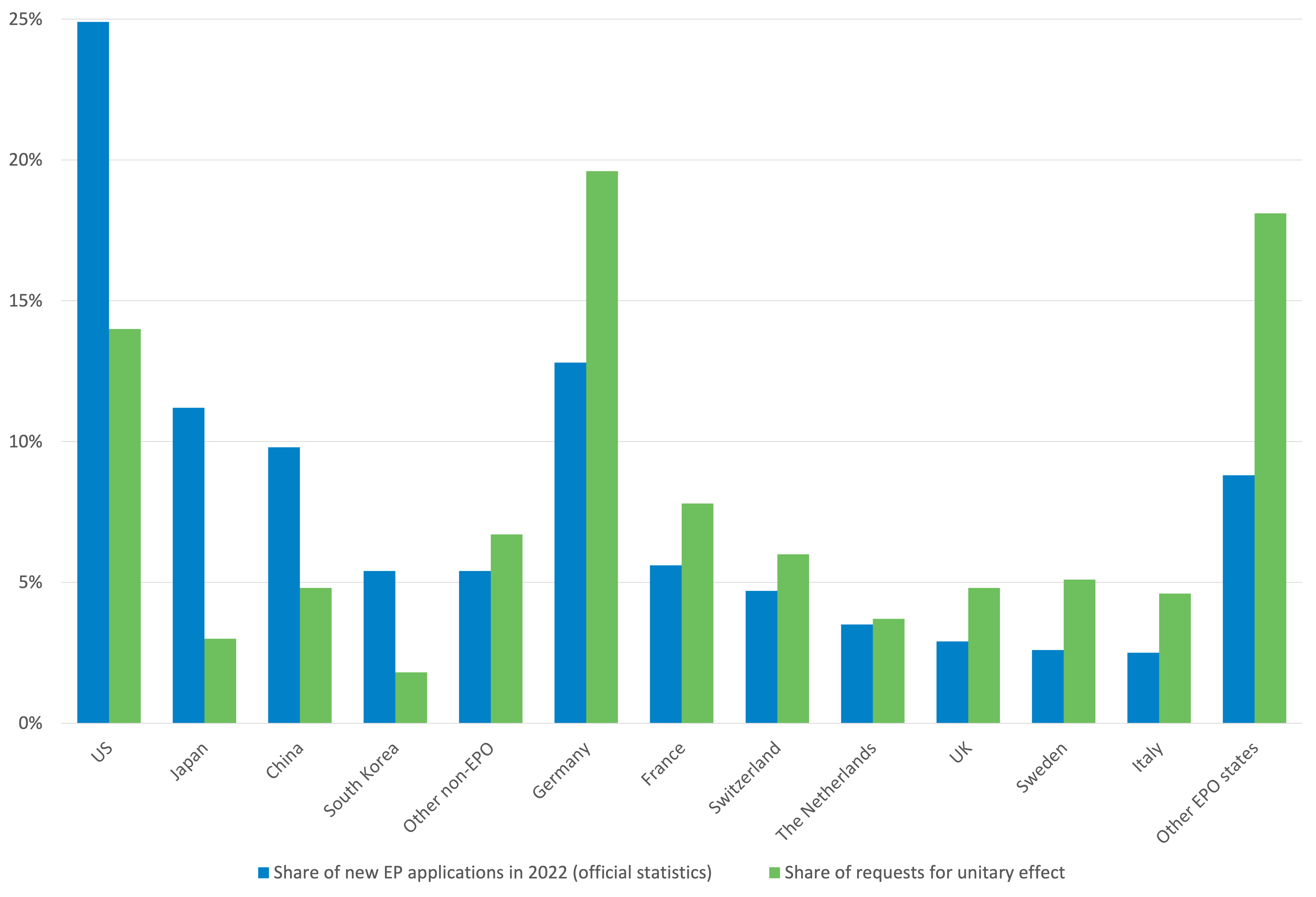
On the other hand, proprietors from Asia and the US appear overall less enthusiastic relative to their proportion of European filings. The muted uptake of unitary patents by Chinese and South Korean proprietors in particular, coupled with their relatively low proportion of opt-outs from the UPC suggests a general apathy from patent owners based in these countries towards unitary patents and new UPC.
Translation languages
As expected given the rules on the requisite translation of the specification when requesting unitary effect, the number of translations into English corresponds to the total number of patents where the procedural language was French or German.
Excluding translations into English, we can see that most translations were made into Spanish, which can be a cost-reducing approach if the translation is re-used for a classic validation of the European patent in non-UPC signatory Spain. German taking second place could also make sense from a cost perspective as the claim translations can be re-used from the grant formalities, but then we do not see the same for French, and so the high proportion of translations into German appears to primarily be based on the preference of the EPO representative.
Language of translation used for the request for unitary effect
(where the procedural language of the European patent was English)
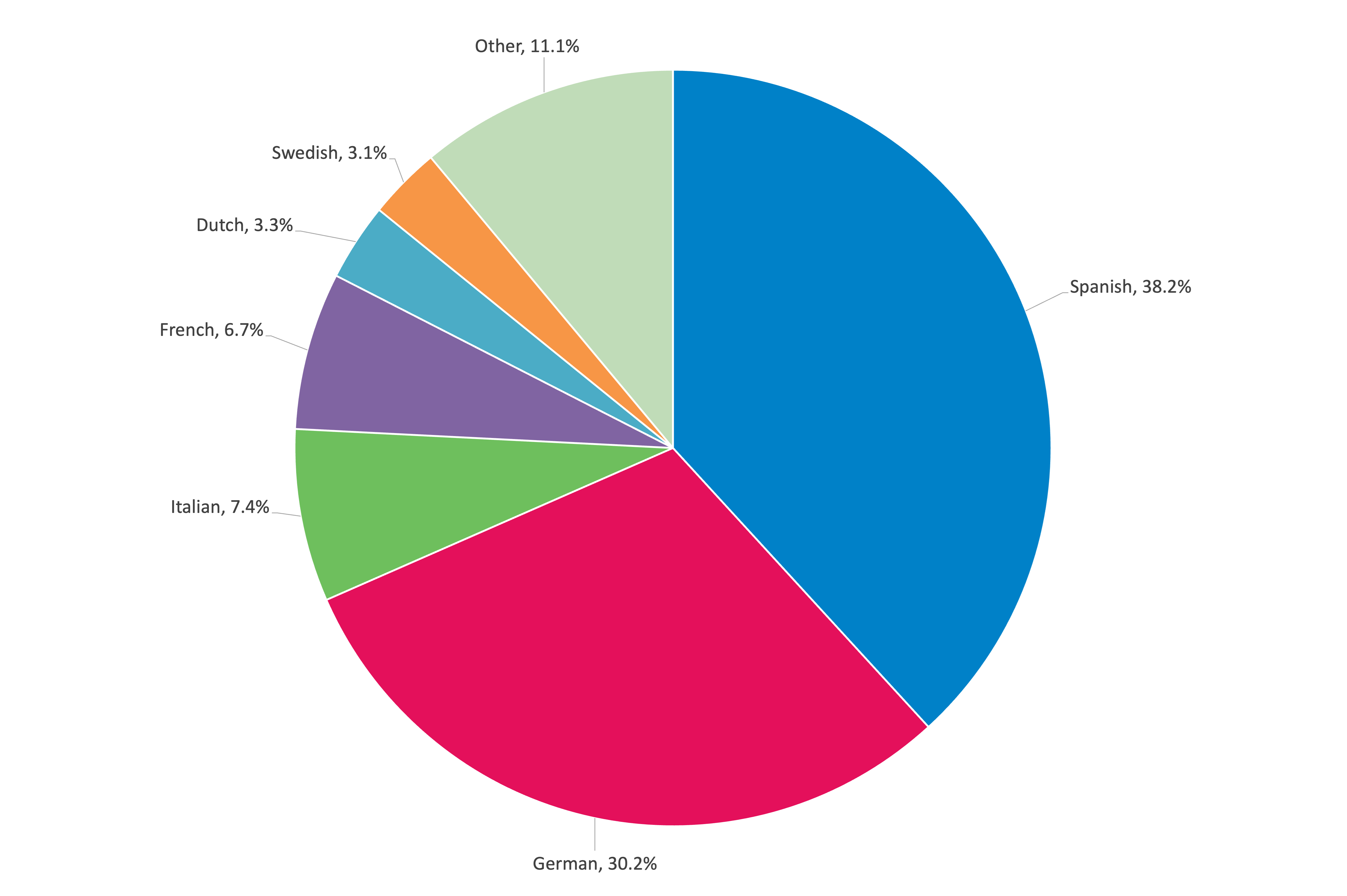
Technology fields
By absolute number, patents related to medical devices dominate the top 10 when looking at the first International Patent Classification of each European patent for which unitary effect has been requested. This follows since these patents would usually have been widely validated under the classic system. However, the proportion of these relative to the number of grants in June and July 2023 hovers around 18% to 20% which is below the overall average of 25.5%. And whilst plenty of telecoms and software patents are turning into unitary patents, these represent less than 9% of the number of grants in the last two months.
Top International Patent Classifications of patents with unitary effect request
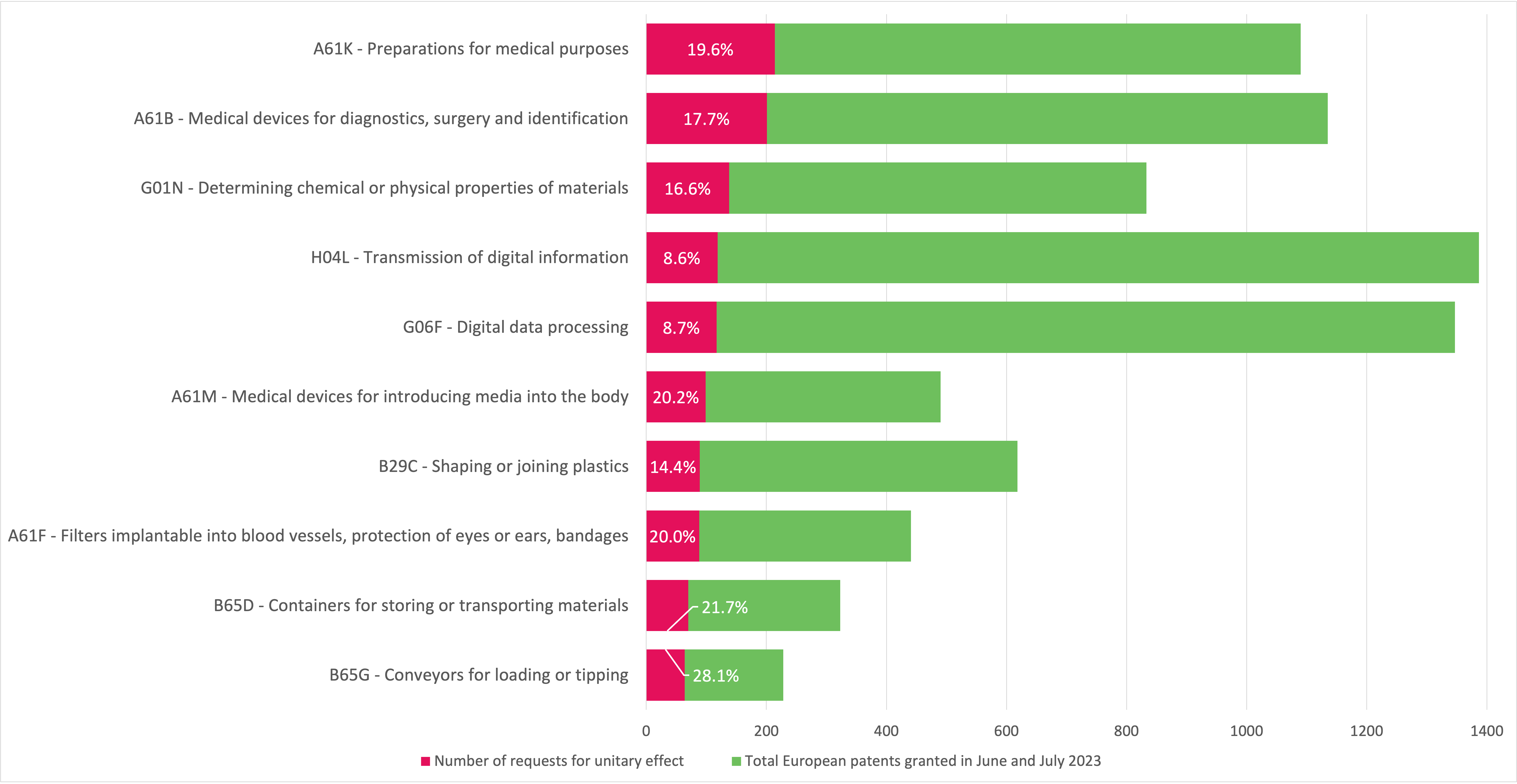
Deutschland ist top
What is becoming clear is that if there were prizes being given out related to unitary patents and the UPC, Germany would take them all home.
Germany ranks highest with the most owners of unitary patents, the second most owners of opt-outed patents and applications, the most UPC representatives, UPC division with the most infringement actions, and UPC division with the most revocation actions. German is also the second most popular language for the translation used to request unitary effect. Gut gemacht!
________________________
To make sure you do not miss out on regular updates from the Kluwer Patent Blog, please subscribe here.



“And whilst plenty of telecoms and software patents are turning into unitary patents”
We were told the UPC was not about software patents, what a surprise!
I just wonder whether technological products which are not software products still exist on earth